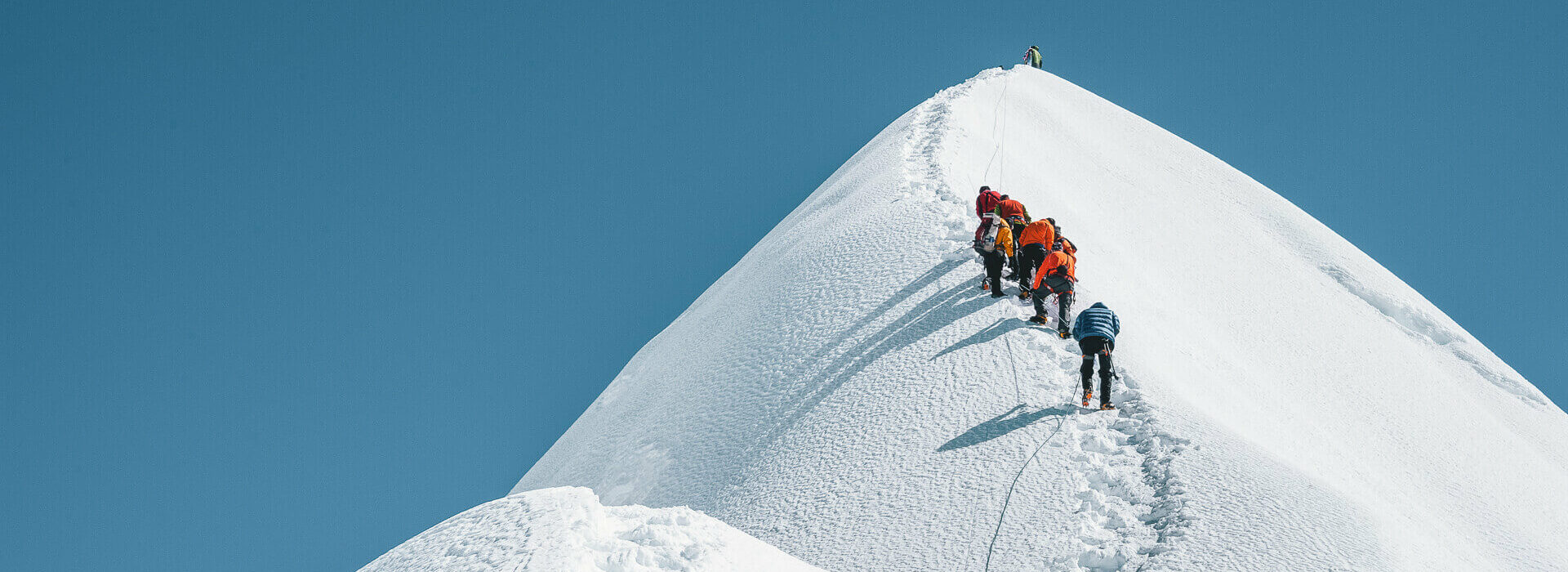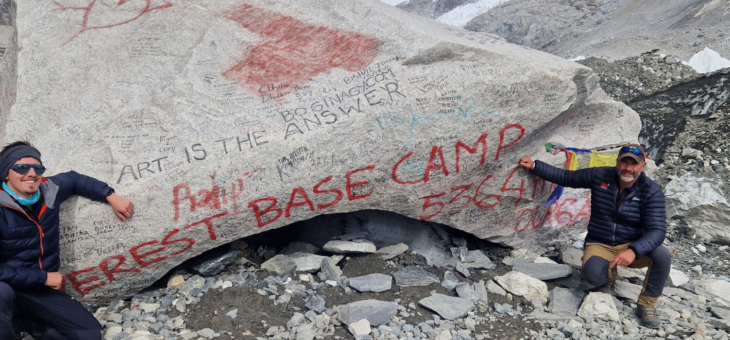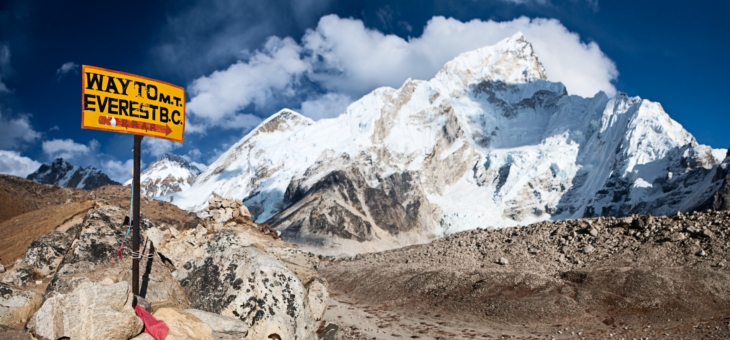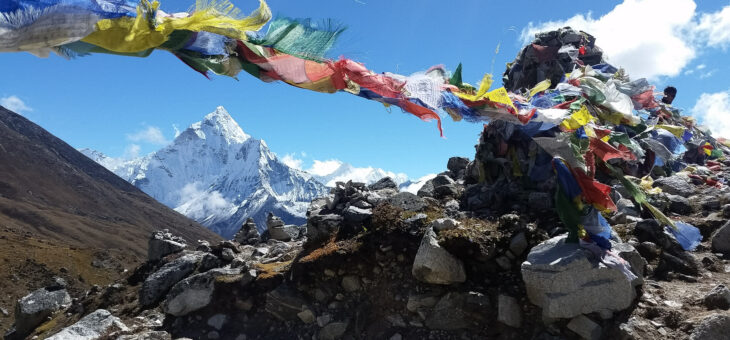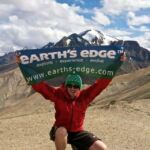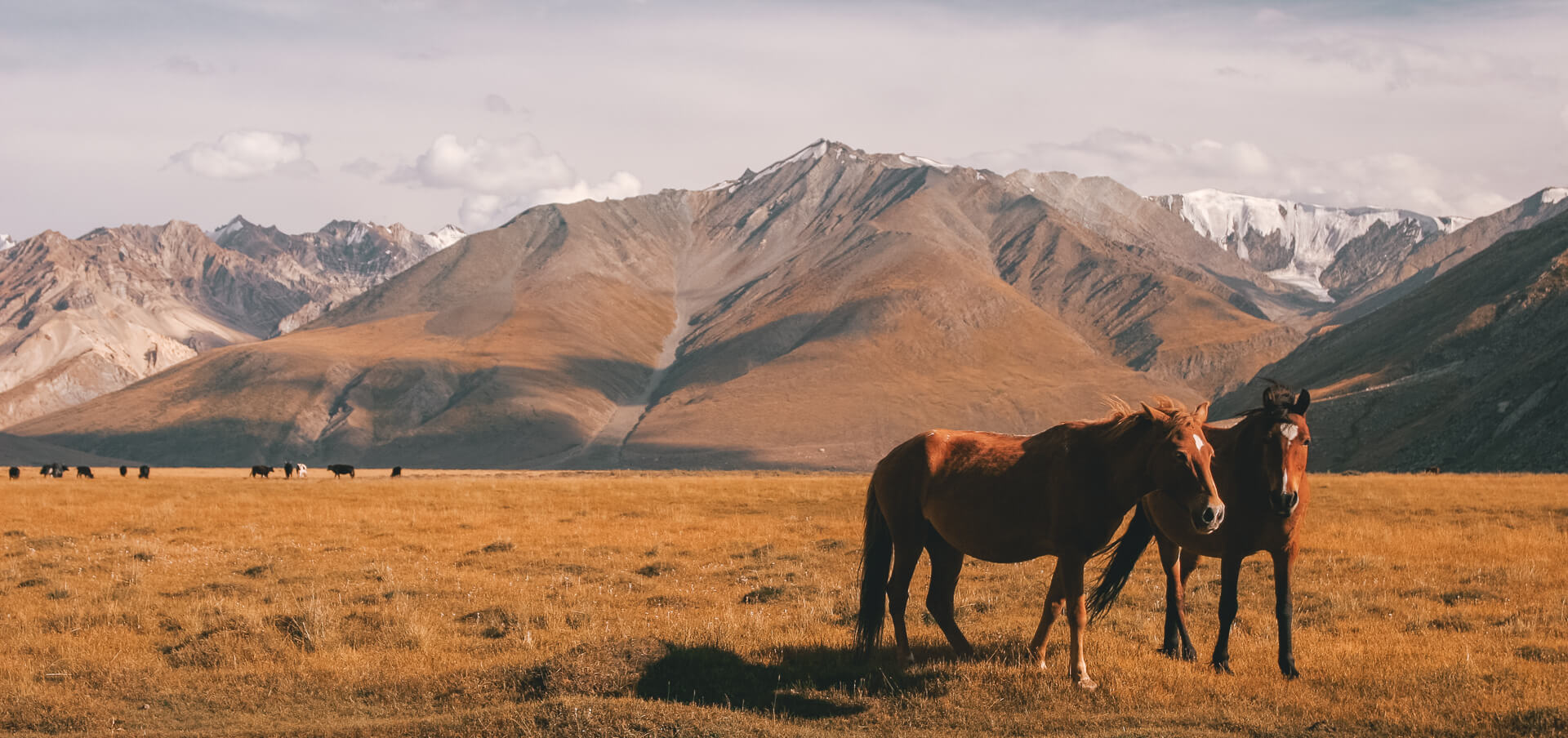
I recently lead an expedition for Earths Edge to climb Island Peak, ticking off Everest Base camp along the way. I was also asked to write about whether climbing Island Peak was much harder than reaching Everest Base Camp. I’m home a few days now and have had a good bit of time since summit night to contemplate this.
It hasn’t taken too much introspection to arrive at the right answer. In one word and to simplify it, it’s a massive yes. Island Peak is a much harder prospect than Everest Base Camp.
Sometimes these comparisons can be harder to make. Recently, another Earth’s Edge guide, John Healy, wrote about comparing Elbrus and Aconcagua. He had a much harder task on his hands, as, while he was comparing different styles of the trip, he was still comparing two very tough summits.
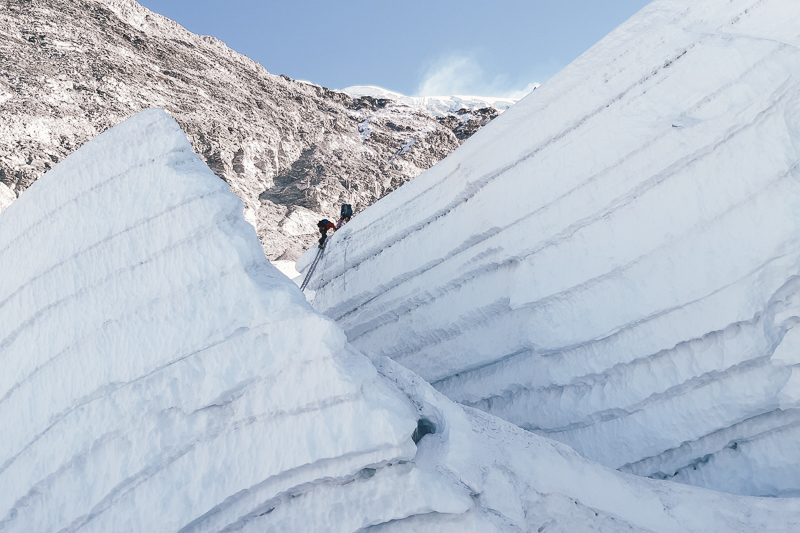
Climbing Island Peak vs Everest Base Camp
It’s best to look first at what’s you need to reach Everest Base camp as an objective of its own. First of all, you need an overall good level of fitness. It’s 12 days of trekking in a row, with most days taking up 6 hours of trekking. For the most part, the trek is on a fairly good quality path. It undulates up and down and snakes its way through the valleys towards the roof of the world.
There is no one “big day” that is as tough as a summit night on Kilimanjaro for example. Putting 12 days of trekking back to back isn’t easy. Couple that with dealing with symptoms of being at altitude, makes this a considerable challenge.
That said, even with a lack of prime fitness and maybe not feeling 100% yourself, if you have the right kind of mindset, I feel Everest Base Camp is achievable for most people who have the grit and determination to get there.

Trekking to Island Peak
Island peak is a different proposal though. Up until day 12 it’s the same itinerary as Everest Base Camp, but at the point where an Everest Base Camp trip would start making their way down the valley, with increasing oxygen levels and the prospect of warm showers and a comfy flight home await a few days later, Island Peak requires you to go a good bit further. Although unscheduled, we took a complete rest day at Dingboche since we were tired from our adventures to date. We were essentially at the halfway point of the trip and taking a break really helped. The foot may have come off the pedal a little, but we didn’t dare take our focus off the target of climbing Island Peak.
Roping up
The next day had us walking a relatively short distance from Dingboche to Chukung, but the main focus of today wasn’t mileage but skills acquisition. We had lunch and spent the rest of the day getting used to the gear and rope systems we would be using on summit night. A good few of the group had climbing, abseiling and jumaring experience. Our tired minds and bodies struggled as we had to use brains now as well as bodies.
The quality of the tea house at Chukung was a massive unexpected bonus! It’s standard was far superior to anything else so high up the valley. You can’t underestimate the benefit of morale and recovery this oasis of comfort was! In its own small way, it contributed to the success of the trip. It can be the little things sometimes that make all the big things come together.

Island Peak Base Camp
From Chukung we moved to Island Peak Base Camp, a small tented village at 5000m and the first taste of tents for us on this trip. This is another big difference from a standard Everest Base Camp trip where all accommodation is in tea houses (basic hostels) each night.
One night there and a further afternoon of rope skills and training and we progressed to high camp, a basic campsite on a rocky outcrop at 5500 and possibly one of the most amazing camping locations of my life, then to bed early, in preparation for a big night ahead.

Summit night on Island Peak
Summit night is a big night. We start at 2 am and take on a brisk scrambly climb through rocky gullies and sometimes loose rock. A Kilimanjaro summit night veteran would’ve experienced this kind of climbing before. At crampon point we do the obvious and change into our winter gear and rope up as a team, moving together over glacial terrain, ladder crossings and steep icy snow for a couple of hours. All this to get to the base of the peaked section of the mountain itself. From here we pooled our bags in a makeshift base camp and carried lighter loads, just the basics, to make every gram of weight saving possible.

Finally climbing Island Peak Proper
We jumar’d our way up fix lines, slowly and steadily, putting a few steps together before needing a lung enforced rest, a full body workout. It took another couple of hours to get to the top, every step worth the effort though, to stand on a 6000+ peak in the Himalayas one of the coolest things I’ve ever achieved.
The work doesn’t stop here though. While other peaks might afford a level easy descent and of switching off, Island Peak demands total concentration for a series of multiple abseils down and off the final headwall.
We recollected our bags on the way down, but we couldn’t switch off just yet. Urgency and concentration are required to get off the glacial field and away from its midday dangers. As we retrace our way down, it’s obvious again that we can’t switch off. The severity of the terrain and the amount of work required left to do before nightfall is a reminder to keep vigilant and aware.

Who can climb Island Peak?
In essence its the technical element that separates Everest Base Camp from Island Peak. You aren’t just trekking, you’ve dipped into the realm of the mountaineer and its not a place to be casual. A multitude of skills coupled with physical and mental endurance is what separates the able from the unable here.
One thing I noticed on our trip, was that the group was made up of the able. The collective experience of the group prior to the trip was quite impressive. Elbrus, Mera, Kilimanjaro, Mont Blanc among others. Only one or two people had never been to altitude. They did arrive with an exceptional level of fitness and a mindset to challenge themselves like never before. For the rest, the fitness and experience gained on other tough summit nights ultimately worked for them when they needed it.

If you’re interested in climbing Island Peak for yourself, you can visit our Island Peak and Everest Base Camp expedition page or even watch our talk in The Great Outdoors about the trek below!
